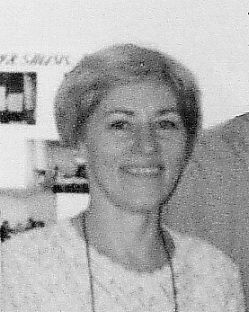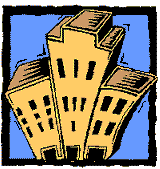The Actual Situation of Adult Education in Lithuania
 By
Roma Vilimiene'
By
Roma Vilimiene'
chair-woman of the board, Lithuanian Association of Adult Education
As it was mentioned in Manchester’s EAEA Conference, in May, 1998 by the Minister of Education and Labour of UK Baroness Blackston:
when people do not learn, do not grow, the economy suffers too -without their energy, activity, creativity. That is why it is so important and nice that we - adult educators- can meet each other, can talk about the problems we deal with in our interesting and beneficial work for our societies."
Therefore I would like to thank the organisers of the meeting for the given opportunity to communicate with each other and to share our experience and views on adult education.
New circumstances in Lithuania
Talking about the actual situation of adult education in Lithuania the news of utmost importance is that the Law on Non-formal Adult Education was passed in the Seimas in June 1998. Educational Reform in Lithuania in general was started in 1989. The main attention was paid to the General Education, Higher Education and Vocational Education and Training in that time. The Laws in these areas of Education were passed in the Seimas (Parliament) in this order:
- Law on Science and Studies - February 1991,
- Law on Education - in June 1991,
- Law on Vocational Education and Training – in October 1997.
It seemed that Adult Education problems were delayed for the better times. And only in June 1998 the Law on Non-formal Adult Education was passed. It is late but at least a good sign of Government’s attention to the Adult Education problems in Lithuania. The new Law opens bigger and better opportunities for the development of adult education concept and system in our Republic.
Now adult education is regulated by two Laws in Lithuania - Law on Vocational Education and Training (third part - Labour Market Vocational Training) and Law on Non-formal Adult Education. Due to the fact that our Association mainly deals with the latter, I would like to introduce the main characteristics of it.
Law on Non-formal Adult Education
The National Council for Non-formal Adult Education has been created not as representative body but for provision of the expertise. There is a list of the members, which is submitted for the Government for the approval. The board includes one representative from the Ministry of Education, it has the following functions:
- to monitor the non-formal adult education;
- to estimate the level of development of the system;
- to prioritise the development of this sector of the education system;
- to provide expertise for the developmental projects in non-formal adult education
The Law introduces new rights for the customers of non-formal adult education:
- it is obligatory to have signed a contract between non-formal education provider and the customer if the event is due to be paid for;
- the customer of non-formal education has right to get a paid leave of absence from work for meeting his/her educational needs when it is agreed between him/her and the employer.
There is a new requirement for budget organisations to allocate at least 3 % of their annual budget for meeting the educational needs for employees. The Government is going to support non-formal adult education from the state budget. The projects and development programmes, research in the area of adult education will be examined by expert groups appointed by the Council. Training of trainers for adult education is a high priority, also the development of the facilities for organising non-formal adult education activities (buying, renovation, renting of the venues and necessary equipment).
Another new and important issue in Lithuanian Adult Education is M.A. studies in Andragogy at Vytautas Magnus University in Kaunas. Currently 45 students are ready to complete their studies.
The education of adults is divided into two parts: formal and non-formal
Formal education is general education, vocational, college and university education or parts of it, which are regulated and supervised by the state or state authorised institutions. The state education registers provide for the general education standards, general requirements for curricula and modules, specialities and qualification requirements for occupations define this area of education. Diplomas and certificates of such education are recognised by the state.
In 1990 the development of the new adult education system was started together with the reform of the general education schools for adults. Since that time the number of general education schools (most of them working as evening-schools) for adults decreased by 30% in 1992/93 and by 22% in 1997/98, but number of students increased in the same time: there were 5.806 students in 1992/93 and 8644 students in 1997/98.
Their structure has also changed. The former evening schools were reorganised into Adult Education Centres (11), they work in most innovative form, they provide not only general education, but also arrange non-formal education courses. In 1996 there was established Adult Education Centres Leaders Association.
Formal vocational education and training is concentrated in vocational schools, colleges and in the labour market training centres. There are no separate departments in vocational schools for working adults. But colleges have operating adult education departments, where students usually take distance education. Our Universities developed a new in-service training infrastructure, too. They have established different schools, continuos education centres, business training centres. Currently 44 institutions for Formal Adult Education work in Lithuania.
After the emergence of the phenomenon of unemployment, the creation of the labour market training system commenced. In 1992, the Lithuanian Labour Market Training Authority was established. This is a public institution dealing with labour market training regulation and co-ordination. It is subordinated to the Ministry of Social Security and Labour. The authority has 6 subordinate territorial Labour Market Training Services and 15 Territorial Labour Market Training Centres. Totally 21 institutions deal with the Labour Market Training.
Non-formal education is the most widely spread area of adult education and is provided by:
- adult general education schools (mainly adult education centres);
- adult vocational training centres;
- qualification upgrading and retraining centres;
- colleges and universities;
- non-governmental organisations and associations;
- radio and TV;
- individual enterprises and companies.
The certificates within non-formal adult education might be recognised by the employer, employer organisations or unions. Over 600 organisations and institutions are the providers of non-formal education, education for self-development. Unfortunately, the statistical publications do not contain much data on non-formal education for adults.
In 1997 the National Observatory and the Methodical Centre for VET initiated a sociological research of adult education. During the research 1,000 adult residents of Lithuania were questioned. This was felt to be a sufficient number to reflect the actual situation in Lithuania. The findings showed that
- only 20% of the respondents participated in continuing education activities;
- 16% of the remaining respondents wished to study and 84% indicated that they felt no need to improve.
- the most popular course was a driving license course (13%),
- next was a foreign language course (12%),
- and the national language course ranked third (9%).
Another survey on continuing vocational training was done by the support of ETF in NO, however, the report has not been completed yet.
Lithuanian Association of Adult Education (LAAE)
Lithuanian Association of Adult Education was established in 1992. At the very beginning there were approximately 25 individual members and 5 organisations. Now the number of members (208 individuals and 7 organisations) and role of the Association is on the increase.
Our organisation mainly deals with :
- Legal policy: takes part in the formation education policy of Lithuania.
- Public Relations: publicises information about the problems of adult education, contacts with mass media.
- Programs: supports and organises teaching, research and consulting programmes.
- Information support: takes care of publishing methodological and informative collections, spreading the information is carried out mainly through ten established regional information centres.
- Seminars: organises seminars, training courses on adult education problems and qualifications of adult educators.
- International cooperation: co-operates with European and World Adult Education Associations and individuals.
- International exchange: chooses and recommends adult educators of the country to take part in study tours for exchange of experience. Organises international seminars and conferences, exchanges teachers and students with other countries.
Strategic development
- Development and dissemination of methodology for adult education trainers is considered to be the most important area for LAAE. We think that this area could be developed both as national project and international activities as well.
- Development of leadership skills within NGOs is important, and the participation in PHARE and NFA projects has created the basis for future steps in this field.
- Development of the links with the Ministries, municipalities, mass media and other players in adult education are essential. We are thinking about overall PR policy and the ways of making the communication more effective.
- In order to foster the development of adult education policy within the municipalities Open Adult Education Days is a top priority.
Contact address:
Lithuanian Association of Adult Education
Roma Vilimiene
Gelezinio vilko 12 - 432
2600 Vilnius, Lithuania
tel./fax 370-2-619031
e-mail: lssa@puni.osf.lt
